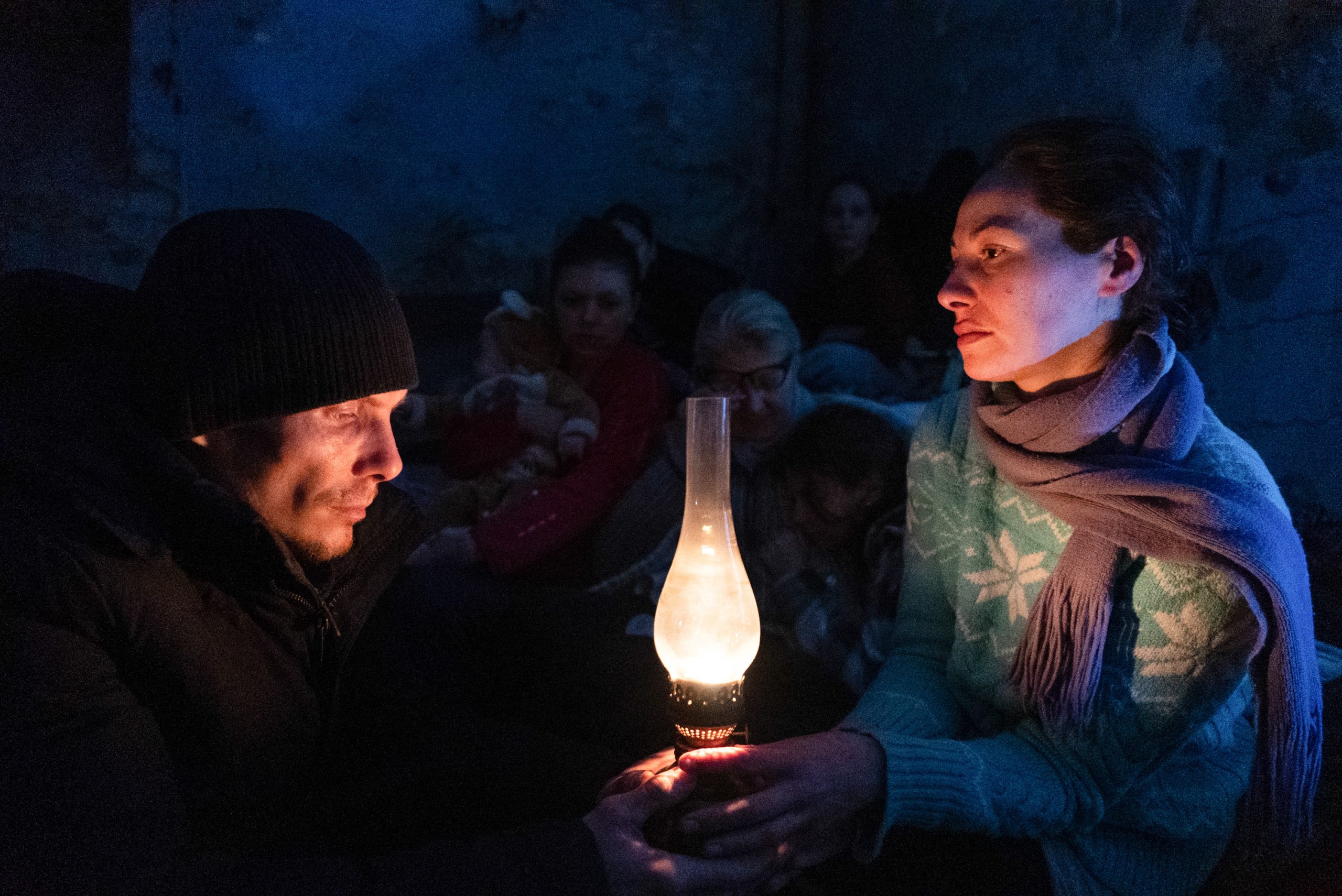The 2024 Australian International Documentary Conference (AIDC) continues the conversation of previous conferences with the forward-focused theme of Frontlines: Shaping the Future of Documentary & Factual.AIDC is held over four days, from 3-6 March 2024, at ACMI in Melbourne/Naarm, with over 40 sessions, including 70 speakers and 100-plus industry decision makers.
Some of the major events of the conference include a Spotlight session with one of Australia’s most prolific and significant storytellers, Rachel Perkins. Other Spotlight session guests include Kaouther Ben Hania, the Oscar nominated director and 2023 Cannes Film Festival Best Documentary winner of Four Daughters, while fellow Oscar nominee Mstyslav Chernov will talk about their work documenting 20 Days in Mariupol.
As AIDC encompasses global stories, it also focuses on local documentarians who are pushing the documentary and factual format forward. Panel discussions include a look at the rise of music documentaries, with Poppy Stockell (John Farnham: Finding the Voice), Paul Goldman (Ego: The Michael Gudinski Story), and Sarah Noonan (OneFour: Against All Odds) each discussing the rise of music docs in Australia. Elsewhere, representatives from SBS and NITV will talk through their process of commissioning documentaries and factual material, while Marungka tjalatjunu (Dipped in Black) creators Derik Lynch and Matthew Thorne will be on hand for a spotlight session on their Berlin Film Festival award-winning documentary.
Pulling a conference like this together requires the work of a dedicated and informed programming team, which is lead and supported by AIDC CEO and Creative Director Natasha Gadd. On the day after the Academy Awards nominations were announced, Natasha joined me to discuss the theme of Frontlines, what she has recognised with the changing conversations about documentaries and factual storytelling over the years, and her picks for some of the ‘must see’ sessions at the 2024 conference.
To find out what other sessions are being presented at the 2024 Australian International Documentary Conference and how to buy tickets, visit AIDC.com.au.
This interview has been edited for length.

What’s it like knowing that you’ve got Oscar nominated films that will be presented at AIDC?
Natasha Gadd: It’s great. It’s a testament to the great work of our programming team who are able to identify documentaries which stand out in their field and break new ground as we’re watching them throughout the year before. We saw that with 20 days in Mariupol. The director, Mstyslav Chernov, is a Ukrainian photojournalist and was the last foreign press journo to remain in Mariupol during the twenty-day siege. They documented the harsh reality from the frontlines. I saw the film at HotDocs, and I remember thinking ‘This has to make it to the Oscars shortlist.’ Similarly for Four Daughters, which our team saw at MIFF. It felt like it was breaking new ground and was quite experimental in its play with fact and fiction. It’s super exciting to see them traverse along the awards campaign period. It’s good, and it’s bad, because the Oscars are about four days after AIDC, so it means that the filmmakers can’t be here because they’re busy in LA campaigning. They will be here virtually.
Can you talk about the origin of the theme for this year’s conference, Frontlines, shaping the future of documentary and factual storytelling?
NG: The theme was born out of seeing 20 Days in Mariupol. Initially, it was about the idea of how documentary filmmakers are often at the frontlines to take stories of conflict to the world. Then it was thinking a bit more laterally about filmmakers who are at the frontlines of innovation, of experimentation with technology, and something like Four Daughters really plays into that. I know that the director, Kaouther Ben Hania, is not a fan of traditional reconstruction or reenactment in film. This is a documentary that features the mother and two of her four daughters who are retelling the story of another two of the daughters who had runaway and joined ISIS in Syria. The director decides to bring in actors to play the two missing daughters and also the mother, with the idea being that the interplay between the actual documentary participants and the actors will bring out new truths, and it helps them discuss things that they can’t discuss due to trauma or hurt or not wanting to burden each other.
One of the other films that will be part of AIDC is Marungka tjalatjunu (Dipped in Black), with Derik Lynch and Matthew Thorne in attendance. This is a film that leans into the style of filmmaking you’re talking about. It’s a reflection of a life lived and the complexity, the freedom, and the trauma within it. How important is it to spotlight a film like Marungka tjalatjunu?
NG: When I saw it, I was so inspired by how Derik draws on his cultural storytelling knowledge and interweaves that with this kind of creative documentary practice to push the short form documentary into a realm that I haven’t seen very often. This is a film that was up against a bunch of features in competition at the Sydney Film Festival and managed to pip them all at the post. It was recognised by the jury as being deserving of one of the major doc awards, even though it’s 22 minutes long. This really does fit into the theme of Frontlines, of pushing new ground, daring to be bold, and being courageous in storytelling.
There is such a shift in landscape, and you end up with content that works really well on the streamers, and so the streamers will then go back to look for more of that content. Similarly with broadcast formats, often filmmakers are needing to adapt to fit into a format that’s already predetermined. Whereas the films that we’re seeing, like 20 Days in Mariupol, Dipped in Black, or Four Daughters, are not subscribing to any form in that sense. They’re playing with the form to best tell the story in the way that it helps to communicate the essence of the story they’re trying to tell.
Have you seen discussions emerge about the way modern documentaries are evolving? Is there a discussion around whether documentarians are breaking the format in a that makes them not a documentary any more?
NG: We’ve come a long way and we’re able to be real and open minded about what a documentary could be. If you think about a film like Flee, which is entirely animated, but because it’s drawing on real interviews and someone’s lived experience, and a retelling of history, then it doesn’t matter that any of the visuals that we’re seeing are not grounded in any reality. There is still a story that has truth at its heart that’s being communicated, but it’s being communicated in a completely creative way. I think that there is a lot of room to move. As to how far those films can travel beyond film festivals is probably another question, because I think in terms of the platforms and the broadcasters, it’s much harder to deviate from what is considered ‘documentary and factual’ on those platforms.
That’s one of the joys of the conference, as well as that’s a place where those conversations can take place. I’m curious for you, how have those conversations evolved over the years?
NG: It’s interesting. The landscape shifts so radically. I think certain we thought it was going to take a certain direction in terms of potentially streamers being a major competition for the public broadcasters and potentially commissioning a lot of new local content and that being a difficult strain on the resources of both the industry here, but also on who gets to get what content on their platforms, but as so many of the streamers are now pulling back on their local commissioning, and we haven’t got the content quotas in place to regulate how much Australian content should be commissioned, we’re not really seeing that huge streamer takeover of local content that we maybe feared initially. Now, I think there is the concern about them not meaningfully investing in local content and buying in content from overseas. There are only so many slots on the broadcaster’s and availability for documentary and factual, and outside of the festival models, there are new SVOD documentary platforms popping up, like DocPlay and CuriosityStream, that you can see really incredible documentaries, or even via YouTube and Vimeo. We’re seeing that people are gravitating to places where they can get really great documentary content.
Is that the mindset then behind spotlighting somebody like Rachel Perkins, who has navigated features and documentaries, and has done so in a magnificent and expansive way.
NG: Absolutely. Rachel founded Blackfella Films, which is one of Australia’s leading production companies, which has produced so many landmark documentary series like First Australians and The Australian Wars. It’s really important to hear from someone like her who is not just an incredible creative force, but a business force too, in that she was able to set up that production company, which is still going strong, even after she has stepped away from it. It’s interesting to hear from a practitioner, director, and producer like her about the way that she navigates features and series, and moves between documentary and factual and more artistic, creative, and commercially driven content, because it’s a way that you can sustain yourself in this industry. It’s very hard to continue to make feature length documentaries independently for an entire career. She has proved how to navigate to be able to continue to tell these really important stories but being open to different ways in different formats.
Can you talk about some of the sessions or panels that you’re particularly excited about presenting at this years conference this year?
NG: One of the things that’s really interesting with a theme like Frontlines is also talking about the incredible, brave, and daring work that filmmakers do with that sort of creative storytelling, but there’s also a toll to this kind of work. Even if you’re not telling stories from the literal frontlines, just actually telling independent stories, raising the funds, often you have to build trust with the people whose stories you’ve been charged with telling, so we’re doing a really important session called Dispatches From the Frontline: Filmmaker Safety and Wellbeing. There’s been a lot of work around mental health. The fact that we don’t have a union, we don’t have a code of ethics or a code of conduct that’s industry wide, the toll is quite great. We’re looking at people who are working at the front of that, and what sort of resources are in place and what sort of things you might need to put in place for your projects in terms of duty of care plans or aftercare plans, things that we often don’t think about. We just dive straight in. We’re often trying to ensure that we’re looking after the participants of the documentary, but we often forget to think about ourselves as directors or our crew as producers. That’s going to be an important session.
The Cutting Edge with This Machine’s R.J. Cutler and Trevor Smith will be fantastic. They’re large scale, big kind of documentary and factual series creators. They’ve just recently done Big Vape: The Rise and Fall of Juul, and they did The World According to Dick Cheney and The September Issue. They really foresaw the streaming boom. They are really interested in that and have a lot of conversations around what the opportunities and threats the streaming boom can create. They’re also going to dive into what they’re terming ‘neo-verite’ a bit. I’m going to be very interested to tune into that to find out what their definition of neo-verite is. They’re also going to look at their sweeping slate of content coming up, one of which is a Martha Stewart documentary.



